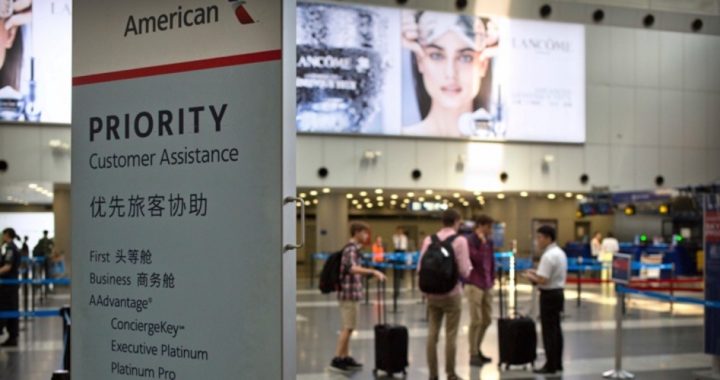
Reacting to pressure from Beijing, major U.S. airlines have begun removing all references to Taiwan as an independent nation from their websites. In May, the Civil Aviation Administration of China (CAAC) issued a letter calling for airlines to remove any suggestion that Taiwan, Hong Kong, Tibet, or Macau are not part of the People’s Republic of China (PRC).
The PRC considers Taiwan a part of its country that is awaiting unification, by force if necessary. The island nation split from China in 1949 when Mao Tse-tung’s communist forces drove Chiang Kai-shek’s nationalists from the mainland during the Chinese Civil War; Chiang was promised U.S. help, but never received it. Hong Kong and Macau are former European colonies that were returned to China in the late 1990’s, although both have a high degree of autonomy. Tibet has been under China’s influence since 1951, although it too retains some autonomy.
“This is Orwellian nonsense,” White House Press Secretary Sarah Huckabee Sanders said upon revelation of the letter. “We call on China to stop threatening and coercing American carriers and citizens.”
But Beijing didn’t listen to the White House request, and today, major U.S. carriers including American Airlines, Delta Air Lines, United Airlines, and Hawaiian Airlines all made changes to their websites to comply with the July 25 deadline issued by the CAAC.
“Like other carriers, American is implementing changes to address China’s request. Air travel is global business, and we abide by the rules in the countries where we operate,” an American Airlines statement said.
By Wednesday morning, American, Delta, United, and Hawaiian Airlines all referred to the main Taiwanese airport as Taipei, Taoyuan Airport, or TPE with no reference to Taiwan. The U.S. carriers are the last to fall in line with China’s demands. Other international carriers forced to change their websites include Air Canada, Lufthansa, British Airways, KLM, Air France, and Qantas.
Referring to the issue, Geng Shuang, a spokesman for China’s Ministry of Foreign Affairs, said on Wednesday that the Chinese government had “noted some positive developments.”
“We agree with the changes made by the relevant foreign airlines,” Geng said.
On its surface, the decision to capitulate to Chinese demands seems to be merely business move: As early as 2020, China will surpass the United States as the world’s top aviation market, so it makes some sense business-wise to stay in the good graces of the communist government. And it’s not only airlines that China is pressuring to toe its line. Many other global brands have been forced to alter policies and advertising in order to meet the demands of the PRC.
Although China never elaborated on what sort of sanctions airlines would endure for failure to comply with the demands, the experiences of other companies may offer a clue. Recently, the international Marriot hotel chain had its Chinese website blocked for listing the Tibet Autonomous Region, Taiwan, Hong Kong, and Macau as separate countries on a questionnaire. In May of this year, American clothing manufacturer GAP was forced to issue an apology to China because of a t-shirt that omitted Taiwan and the South China Sea from a map of China printed on the shirt. And in February, Mercedes-Benz was forced to apologize because of an Instagram post that paired a quote from the Dalai Lama — an enemy and critic of the PRC whom China refers to as a “traitor” and “separatist” — with one of its luxury sedans. (One wonders what the fuss is all about, since Instagram is banned in China.)
The communist government in China is getting very touchy about even the most innocent reference to territories it considers its own, especially Taiwan. Beijing’s recent bluster, along with its recent military activities in the South China Sea, may be signaling that China’s patience with Taiwan has worn dangerously thin. And any potential conflict over Taiwan signals trouble for the world in general.
Photo: AP Images




